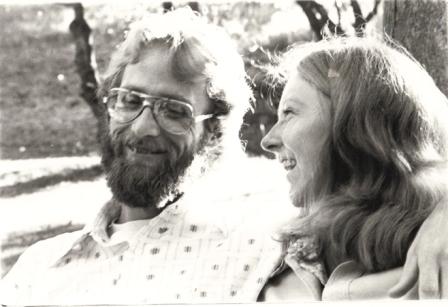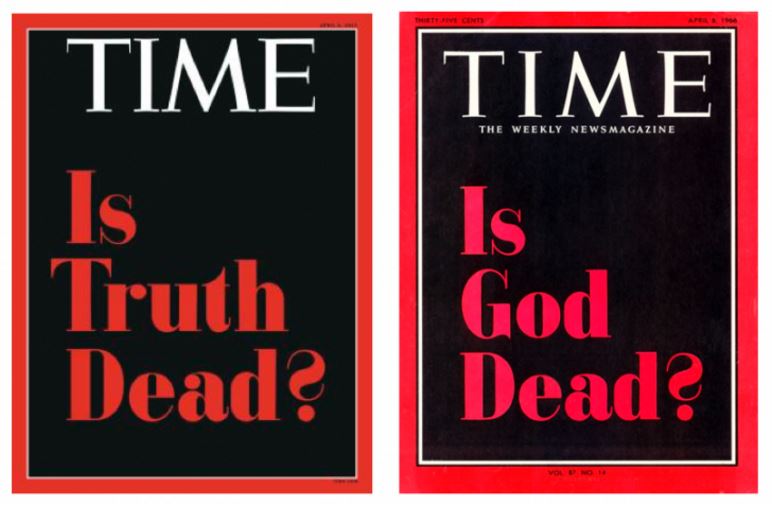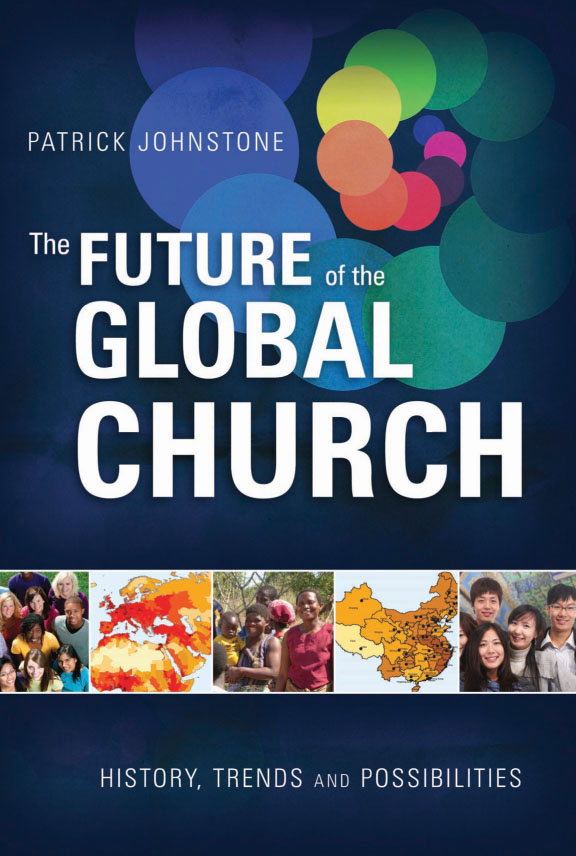
Murray's Blog 2017
Occasional reflections on the Journey...
November 24, 2017
One More Bombing. Being the Light
I won't reflect on today's bombing. There have been others. There will be more.
We as grandparents sit again with married children reflecting on being light in the darkness. Reflecting on bringing children into the world. It's a long conversation and I reflect further into the night. It seems to me the image and reality of light in the darkness is central to God's role and ours.
-
God is uncreated light and the source of all light. Jesus is the light come into the dark world. (John 1:3-5; 8:12)
-
We do not look to the darkness, nor are we preoccupied with it. We live in the light of Christ and look to the Light.
-
We do not run from darkness. Darkness needs the Light. Jesus came into the darkness to redeem those bound in it.
-
We do not strain in the presence of darkness. Light needs only to shine. We abide in Christ.
A bit abstract? Some will think so. I think not. Each of us, certainly, need daily to remember to look to Him who is the Light and to live in Him.
We serve and sometimes suffer as we reflect the Light; the Light that is in us and shines also reflected glory from us to point the way to the Light.
April 22, 2017
Why the Hostility and How to Respond?
Western Christians are recognizing, some with surprise and some having seen the "slow train coming" that what Francis Schaeffer called "a post-Christian" culture has become a "post-Christian-and-bleep-proud-of-it" culture. I won't take the time to point out the massive Christian culture war losses in my lifetime.
The Gospel has done immeasurable good in the west, in fact is made "the west" possible. (More here). Why then the broad hostility to the Gospel?
The objective part of it is simple ignorance of history. However it goes deeper.
I suspect the world recognizes intuitively what E Stanley Jones points out in his In Christ: Once we've surrendered to Christ, we will surrender to no one else. "Low at His feet, we stand straight before everything else. Bound to Him, we walk the earth free." (p. 40)
This was the irritant to the ego of first Caesar who sent the first Christian to the lions, and it remains today the irritant to those who demand absolute power and intellectual conformity. The world wants God to bow to it, and if not, then at least Christians. And we won't.
This is the reason dialogue and apologetics provide limited benefits and only the Spirit of God bringing the new birth brings real change. This is the reason prayer and love and sacrifice are our primary ways forward.
Yes, each individually should be prepared to give an account of the hope that is in us. Yes, we should know history and philosophy well, and use arguments based on natural law effectively. Yes, there is great value in Christians living in missional communities, in many models, serving as salt and light, service and love, as monasteries served as repositories of hope in the middle ages. Yes, the church must take up again the task of serious, even if unaccredited by the world, education, including "higher" education.
But we must do so, willing to suffer in the process, without giving up just because we don't see measurable cultural change in our generation. Rather we do so because the Lord Jesus is worth it. The Kingdom of God is our reason for hope. The Lord is our reason for being and our destiny.
April 2, 2017
"Fixing" The Media
"Fake news"
has been much
in the news of late. The attention to the importance of truth is welcome in a
world in which the elite views us in a "p
In this environment, how do we sort through even the inaccurate observations about 'fake news' in the news? Let me offer a few observations:
1. The state shouldn't fund news outlets. Invariably the news supports the interests and propaganda of the state. Pravda ("truth") supports Russia's party in power. Canada's CBC supports the policies of the political party which founded it and is most likely to increase it's budget. No surprise there.
2. The news in private hands fare no better. Currently major American news outlets are owned by a handful of wealthy families or corporations. The companies owning mainstream media have a similar problem with objectivity as does the state. Sometimes its a matter of ideology and sometimes a simple matter of money - news that 'sells' or generates 'hits' is the news you get:
A friend shared that when he worked for CNN many of his colleagues were 22 year olds like himself with fresh journalism degrees. One of them found a video of a prominent leader which, when carefully clipped, gave the impression the speaker held an unpopular view which he did not hold. The writer was challenged on the resulting story but retorted, "yes I know but the story will generate lots of interest." The journalist's boss backed the story, knowing the video was clipped to give a false impression and the story went to press doing untold damage to the leader falsely accused.
3. In any case, both in the hands of the state and in the hands of private interests, the line between news (what happened) and editorial view (what you should think about it) is increasingly thin. In the past editorial views when onto a separate page. This is no longer the case. Many, if not most, 'news' stories contain embedded editorial views. .
4. Many turn to the internet for alternative views from those with less money and power. The internet levels the playing field but tends to 'bottom line' complex issues, even into 140 characters. In addition, social media frequently tends to rush to judgment with what appears to be minimal analysis or reflection.
5. Part of the problem is our 'hurry up' world in which there is too much information to choose between when only one story can be at the top of the page. The rush to deadline doesn't leave time for reflective engagement and choice. Often there is a 'feeding frenzy' on an emotional or popular topic for a few days, ignoring more substantive issues, moving on to another hot button, unable to tear away to foundational issues of far greater importance affecting far more people are far deeper levels.
What could we make the news better?
A few suggestions we could model:
1. Remember your English 101 research paper? Remember all the fuss about documentation and footnotes? Serious news outlets should go back to citing primary sources. Having to say 'how you know' will slow the tendency to limit oneself to personal opinion. This goes also to raise the level of 'comments' following internet articles. Modeling thoughtful, documented responses takes more time but is needed to show there is a better way.
2. Give space for more research, background, history and analysis. We need to stop hiding behind the view that our generation is incapable or too busy to read more than a few quick emotion-laden paragraphs. Offering the details will give people the opportunity to choose. Just as academic papers offer and abstract up front, a summary could entice readers to go further.
3. Move editorial comment on front page stories to the editorial or opinion page. Because there is more than one opinion on events and their meaning requires, in my view, equal space for the Pro side and the Con side of the issue. The best case scenario is where each side is expected to respond to the points made by the other on two subsequent days. Talking by each other doesn't surface truth.
4. Stop watching TV. There's a good reason television news is called a 'News Show.' Think Hollywood. Opinion and sharp-witted one-liners, appeals to emotion and an eye to the ratings, celebrity personalities and lack of engagement by the public combine to make TV a bad source of data to determine the truth of an issue.
5. When we write or speak, let's separate rather sharply between a) the facts, what has happened (or more importantly, what is the trending direction, well documented), b) why it matters (implications of where we are heading, what has happened in the past when this trend occurred), and c) what we should think or do about the matter. When we distinguish between these components of understanding to contribute to modeling a raised standard of reporting news.
6. In the process of writing news pieces or engaging with news outlets we will have opportunity to engage both in friendly civil discourse, hopefully, and certainly with detractors. In both cases modeling respect is non-negotiable. Equally important is the demonstrated ability to articulate the position of the other person to the satisfaction of the other person before addressing the view ourselves. We can then ask the same of the person responding to us. When we avoid caricaturing the view or person holding it to their satisfaction we can expect the same from them. Even if that fails, we are modeling the direction of hope in media.
Feb 14, 2017
Origin of Valentine's Day
My friend Jeff Fountain writes weekly and well from Europe. I can't help but quote from his recent column in which he shares the generally unknown origin of what has become Valentine's Day:
The original Valentine was a third century Christian priest living in Rome during the reign of Claudius the Cruel. Infamous for persecuting Christians and waging unpopular and bloody campaigns, Claudius believed unmarried men fought better because married soldiers were too concerned about their wives or families if they died in battle. So he banned all marriages and engagements in Rome. This affected Christians in particular, committed to monogamous relationships, unlike most of the then-pagan Roman society. Resisting the injustice of the decree, Valentine defied Claudius and continued to perform marriages for young lovers in secret.
When his actions were discovered, Claudius ordered Valentine's execution. The poor man lost his head on February 14, on or about the year 270. Legend claims that Valentine prayed for the blind daughter of his judge and jailer, Asterius. The girl was healed and Asterius became a believer. Valentine left a farewell note for the girl whom he had befriended, and signed it 'From Your Valentine.'
The burden of Jeff's column however is the call to pay the price for defending of faithful marriage in our age. It's worth reading. And heeding: http://weeklyword.eu/en/4790-2/
January 5, 2017
The Numbers are In
90,000 Christians were murdered/martyred for their faith in Christ in 2016. (Source: Christian Post)
Some will say, "how horrible" and they are right. Some will say, "well, at least that's fewer deaths by persecution than last year" and they too are right. Some will suggest that "at the 2016 rate there will be 9 million Christian deaths by persecution this century" and they may be right too. But what does it mean? Are these deaths "normal," are they "high" or "low"?
Patrick Johnstone gives the best historical context I know of for the meaning of such numbers in his Future of the Global Church from which I've drawn the following:
| Deaths by Persecution for Christian Faith | ||||||
| Century | Christian Population (beginning of century) | Martyrs | % Christian Deaths by Persecution | Christian % of World Pop (remaining at end of century) |
Primary Persecutors |
|
| 2nd | 1,400,000 | 81,000 | 6% | 2.5% | Roman Emperors | |
| 3rd | 4,700,000 | 399,000 | 8% | 7.5% | Roman Emperors | |
| 4th | 14,300,000 | 962,000 | 7% | 13.4% | Roman Emperors | |
| 5th | 25,000,000 | 575,000 | 2% | 19.9% | Persian/Barbarians | |
| 6th | 37,800,000 | 74,000 | 0% | 21.5% | Byzantine Church | |
| 7th | 39,900,000 | 229,000 | 1% | 19.8% | Persian/Muslim | |
| 8th | 40,600,000 | 133,000 | 0% | 18.7% | Muslim | |
| 9th | 40,700,000 | 329,000 | 1% | 17.1% | Various | |
| 10th | 40,800,000 | 80,000 | 0% | 16.9% | Muslim | |
| 11th | 44,500,000 | 115,000 | 0% | 16.8% | Muslim | |
| 12th | 51,700,000 | 169,000 | 0% | 18.4% | Muslim | |
| 13th | 65,700,000 | 7,517,000 | 11% | 24.0% | Mongol | |
| 14th | 56,700,000 | 5,570,000 | 10% | 18.0% | Muslim | |
| 15th | 56,700,000 | 599,000 | 1% | 17.9% | Muslim | |
| 16th | 75,900,000 | 3,917,000 | 5% | 19.4% | Catholic Church | |
| 17th | 100,400,000 | 360,000 | 0% | 21.0% | Buddhist | |
| 18th | 129,700,000 | 190,000 | 0% | 22.7% | Various | |
| 19th | 205,000,000 | 1,969,000 | 1% | 34.5% | Buddhist | |
| 20th | 558,100,000 | 44,933,000 | 8% | 33.3% | Atheist/Secular | |
| Total | 68,201,000 | 3% | ||||
| Average | ||||||
Even this summary is a lot to process but let me make several observations:
-
Followers of Christ have died for their testimony to the resurrection of Jesus in every century, some centuries as high as 11% of all Christians in that century.
-
If 9 million Christians are murdered for their faith in the 21st century, it will be the 2nd largest number in history.
-
We should be prepared and not surprised if persecution comes our way in our lifetime.
-
Even the organized church has persecuted Christians.
How shall we respond? Let's
-
continue to pray for Christians under most danger and risk of death, also for those in all faith communities who experience violence.
-
not be silent but continue to call for governments to view all murder as murder regardless of motivation.
-
provide encouragement and material support to families bereaved of loved ones by persecution.
-
draw near and nearer to the Lord that His strength and light will fill us that our testimony will not wane but bring many to salvation.
December 25, 2016

